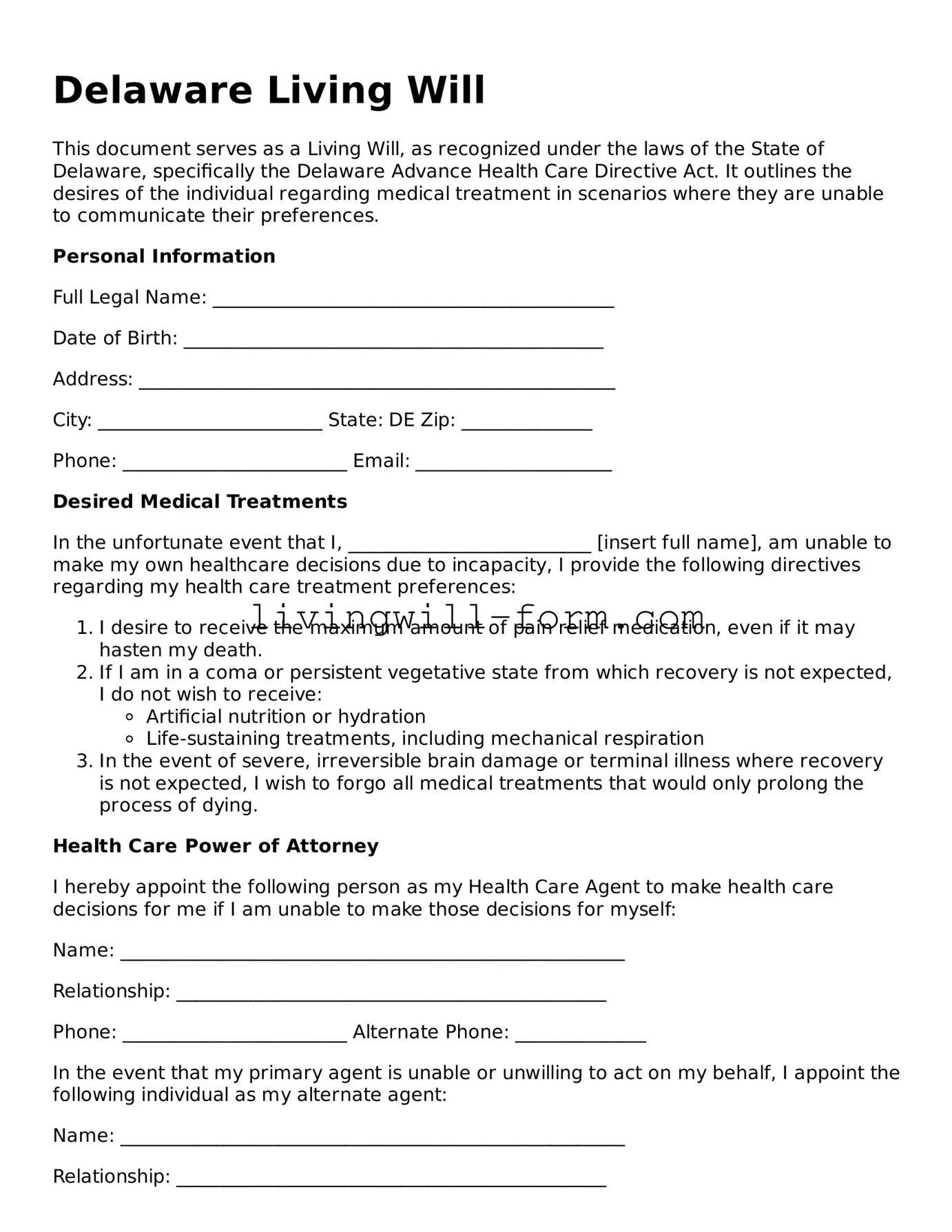Delaware Living Will
This document serves as a Living Will, as recognized under the laws of the State of Delaware, specifically the Delaware Advance Health Care Directive Act. It outlines the desires of the individual regarding medical treatment in scenarios where they are unable to communicate their preferences.
Personal Information
Full Legal Name: ___________________________________________
Date of Birth: _____________________________________________
Address: ___________________________________________________
City: ________________________ State: DE Zip: ______________
Phone: ________________________ Email: _____________________
Desired Medical Treatments
In the unfortunate event that I, __________________________ [insert full name], am unable to make my own healthcare decisions due to incapacity, I provide the following directives regarding my health care treatment preferences:
- I desire to receive the maximum amount of pain relief medication, even if it may hasten my death.
- If I am in a coma or persistent vegetative state from which recovery is not expected, I do not wish to receive:
- Artificial nutrition or hydration
- Life-sustaining treatments, including mechanical respiration
- In the event of severe, irreversible brain damage or terminal illness where recovery is not expected, I wish to forgo all medical treatments that would only prolong the process of dying.
Health Care Power of Attorney
I hereby appoint the following person as my Health Care Agent to make health care decisions for me if I am unable to make those decisions for myself:
Name: ______________________________________________________
Relationship: ______________________________________________
Phone: ________________________ Alternate Phone: ______________
In the event that my primary agent is unable or unwilling to act on my behalf, I appoint the following individual as my alternate agent:
Name: ______________________________________________________
Relationship: ______________________________________________
Phone: ________________________ Alternate Channel: ___________
Signatures
This document is intended to serve as my living will and should be considered legally binding in the State of Delaware. By signing below, I acknowledge that I am fully informed of the contents of this document and understand its purpose.
Signature: ___________________________________ Date: ____________
Print Name: __________________________________________________
Witness Declaration
I, _________________________ [insert witness name], declare that the individual signing this document is of sound mind and free of any duress or undue influence. I am not the individual's healthcare provider, nor an employee of a healthcare provider treating the individual. I am at least eighteen years of age and not related to the individual by blood, marriage, or adoption.
Witness Signature: ______________________________ Date: ____________
Print Name: _____________________________________________________
Notary Public (if applicable)
This document was acknowledged before me on __________________ [date] by _______________________ [name of principal] who is personally known to me or who has produced ________________________ [type of identification] as identification.
Notary Public Signature: _________________________________________
Print Name: _____________________________________________________
Commission Expires: ____________________________________________

